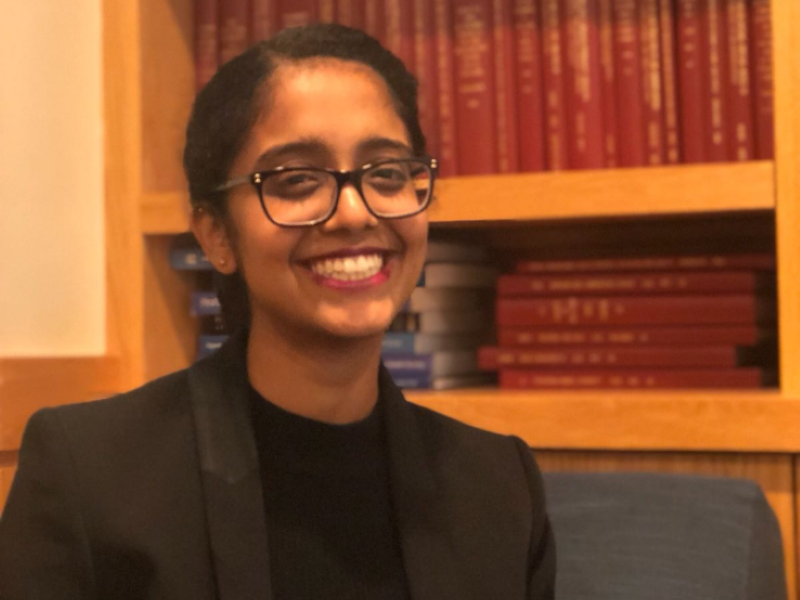 Purvaja Kavattur
Purvaja Kavattur
I originally applied to LSE because I was interested in understanding the persistence of economic and income inequality in different contexts. And, I wanted to do this welfare analysis from the perspective of various actors – governments, families, charities, individuals and corporations. So, it made sense to apply to study Social Policy and Economics at LSE. However, once beginning at LSE my interests began to shift towards reproductive healthcare.
Through a mix of classroom discussions, intersectional feminist society organizing, and increasing international hostility towards abortion care I became more critical of healthcare service provision. I began to see the many barriers to access - and how most of these barriers were politically instigated thereby serving as an affront to realising healthcare as an inalienable human right. Further, through my international and comparative social policy classes I began to understand that just as policies can alleviate marginalization, they can also further entrench it. This analysis coupled with my introduction to social constructionist theory at LSE, has underpinned much of my approach to public health work across the Global North and South.
My final year dissertation was on the influence of sex education policies on the US teenage abortion rate. I was very fortunate to receive a lot of guidance from the Social Policy department. Particularly from my academic adviser, research methods tutor, and my dissertation advisers. They all provided me with quantitative support as well as the encouragement to pursue a career in health research.
Keen to continue developing my research skills and interest in reproductive health, a year after graduating from LSE, I began my masters in Global Health and Population at the Harvard T.H. Chan School of Public Health. Through graduate school I worked on a number of domestic and international projects relating to maternal and child health, and sexual reproductive health. And, through my master’s thesis I was able to explore the use of health research in US abortion jurisprudence.
Following graduate school, I began working alongside Columbia University’s Institute for the Study of Human Rights and the UN Water Supply and Sanitation Collaborative Council. Wherein, I was the lead researcher on a menstrual health policy review across India, Kenya, Senegal and the United States. Through this study we aimed to uncover ways policies normalize/destigmatize menstruation, shape budget allocations and service provision, and create mechanisms for governmental accountability.
I now work with the National Advocates for Pregnant Women, a US-based legal non-profit that defends people who are pregnant and have abortions, experience pregnancy loss, use drugs or alcohol, and who continue pregnancies and give birth. Through my role here I provide research translation assistance to attorneys and paralegal support, as well as document arrests and forced interventions on pregnant people.
Overall, my time at LSE was foundational to both my career and my personal politics. For there began my intersecting interests in research, feminism and reproductive rights.